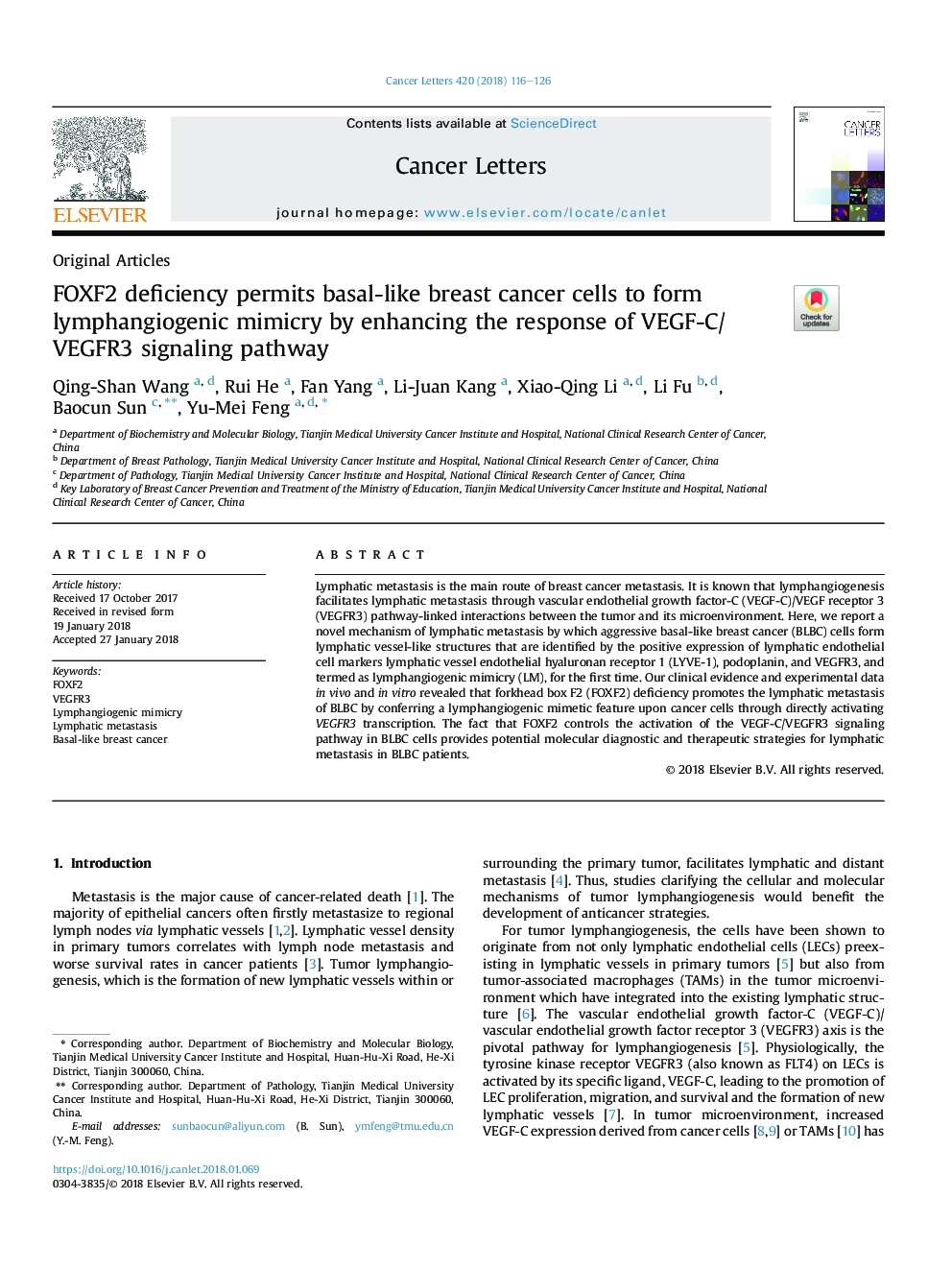| کد مقاله | کد نشریه | سال انتشار | مقاله انگلیسی | نسخه تمام متن |
|---|---|---|---|---|
| 8434660 | 1546649 | 2018 | 11 صفحه PDF | دانلود رایگان |
عنوان انگلیسی مقاله ISI
FOXF2 deficiency permits basal-like breast cancer cells to form lymphangiogenic mimicry by enhancing the response of VEGF-C/VEGFR3 signaling pathway
دانلود مقاله + سفارش ترجمه
دانلود مقاله ISI انگلیسی
رایگان برای ایرانیان
کلمات کلیدی
موضوعات مرتبط
علوم زیستی و بیوفناوری
بیوشیمی، ژنتیک و زیست شناسی مولکولی
تحقیقات سرطان
پیش نمایش صفحه اول مقاله

چکیده انگلیسی
Lymphatic metastasis is the main route of breast cancer metastasis. It is known that lymphangiogenesis facilitates lymphatic metastasis through vascular endothelial growth factor-C (VEGF-C)/VEGF receptor 3 (VEGFR3) pathway-linked interactions between the tumor and its microenvironment. Here, we report a novel mechanism of lymphatic metastasis by which aggressive basal-like breast cancer (BLBC) cells form lymphatic vessel-like structures that are identified by the positive expression of lymphatic endothelial cell markers lymphatic vessel endothelial hyaluronan receptor 1 (LYVE-1), podoplanin, and VEGFR3, and termed as lymphangiogenic mimicry (LM), for the first time. Our clinical evidence and experimental data in vivo and in vitro revealed that forkhead box F2 (FOXF2) deficiency promotes the lymphatic metastasis of BLBC by conferring a lymphangiogenic mimetic feature upon cancer cells through directly activating VEGFR3 transcription. The fact that FOXF2 controls the activation of the VEGF-C/VEGFR3 signaling pathway in BLBC cells provides potential molecular diagnostic and therapeutic strategies for lymphatic metastasis in BLBC patients.
ناشر
Database: Elsevier - ScienceDirect (ساینس دایرکت)
Journal: Cancer Letters - Volume 420, 28 April 2018, Pages 116-126
Journal: Cancer Letters - Volume 420, 28 April 2018, Pages 116-126
نویسندگان
Qing-Shan Wang, Rui He, Fan Yang, Li-Juan Kang, Xiao-Qing Li, Li Fu, Baocun Sun, Yu-Mei Feng,